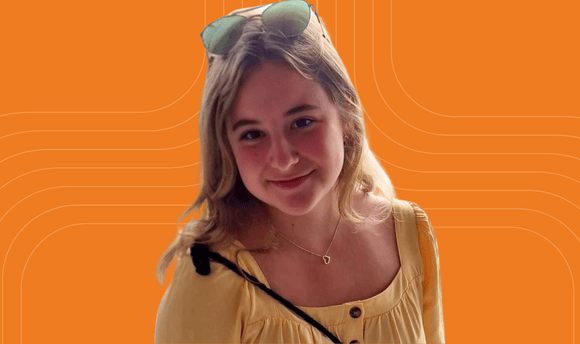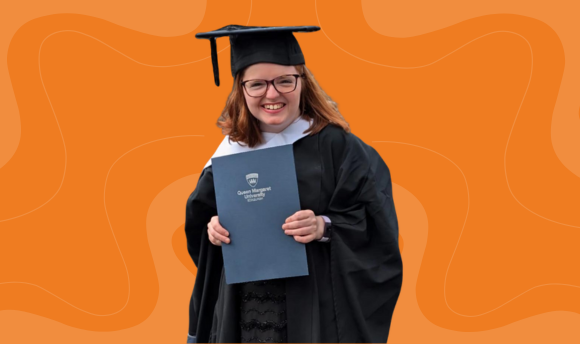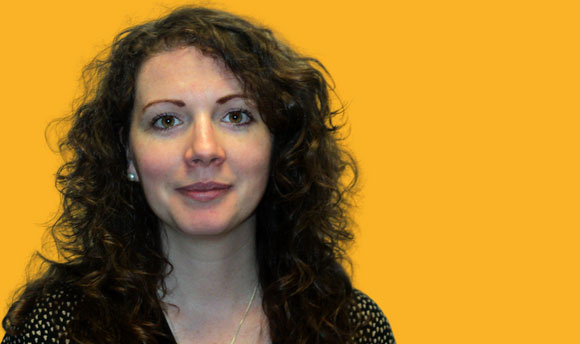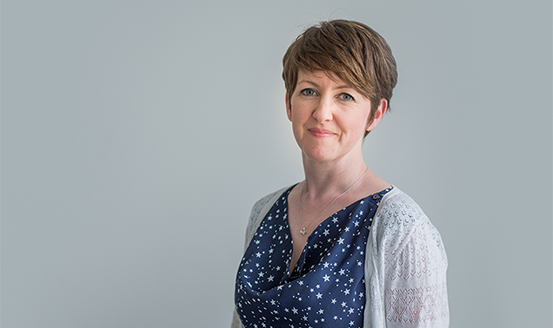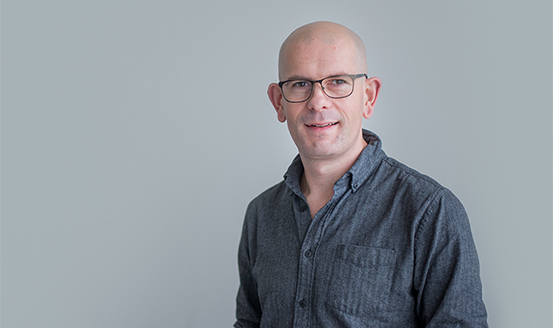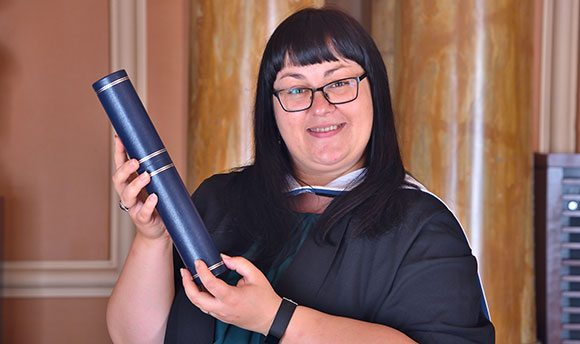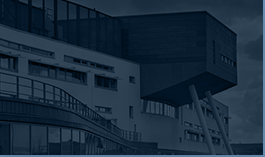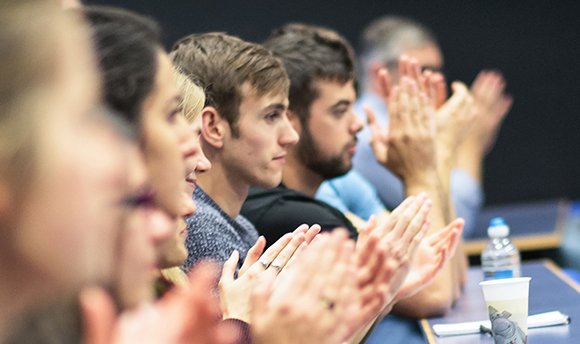Psychology - BSc (Hons)
Are you fascinated by the way people think, feel and behave? Do you want to make a real difference in people’s lives — while opening doors to a wide range of exciting careers? Our BSc (Hons) Psychology, accredited by the British Psychological Society (BPS), gives you the chance to explore the mysteries of the mind while building the skills to thrive in today’s world.
Here’s what you can look forward to:
- Hands-on learning: through real-world research and applied projects.
- Cutting-edge insights: into contemporary issues in psychology.
- Embedded employability: critical thinking, problem-solving, communication, resilience, and adaptability.
- Commitment to equality, diversity and inclusion: supportive and inclusive practice in teaching and learning.
- Interdisciplinary studies: Exploring the broader social sciences through interdisciplinary modules featuring sociology and education.
- British Psychological Society (BPS) Graduate Membership: Eligibility (with a 2:2 honours degree or higher), setting you on the path to postgraduate training and specialist careers in psychology.
This isn’t just a degree — it’s your journey into understanding people, shaping futures, and building a meaningful career.

Why QMU?
- Professional accreditation/registration: Our degree is accredited by the British Psychological Society(BPS). Graduate with a 2:2 or above and you’ll gain Graduate Basis for Chartered Status (GBC) — the first step toward becoming a Chartered Psychologist. This essential recognition opens the door to postgraduate training in specialist fields such as clinical, forensic, and educational psychology.
- Inspiring learning environment: At QMU, you’ll join an active research community where curiosity is encouraged, and your intellectual and professional skills are nurtured — preparing you to tackle the challenges of today’s complex world.
- Hone your research skills: Through extensive, hands-on training in research methods, you’ll learn to think critically, investigate deeply, and contribute meaningfully to the field of psychology.
- Staff expertise: Our lecturers are active researchers working on innovative, cross-disciplinary projects. Their expertise ensures that your learning reflects the latest insights and real-world applications of psychology.
- Support for students: With smaller class sizes, you’ll benefit from an inclusive, friendly learning environment where your voice matters. Our staff are committed to guiding and supporting you at every stage of your journey. As part of our BPS accreditation process in 2024 we were delighted to receive a commendation for our Student Support.
On this course you will:
- think like a scientist – Build strong critical and analytical skills that help you question, explore and understand human behaviour;
- immerse yourself in research – Take part in ongoing projects from day one, with opportunities to collaborate in staff-led research groups;
- explore psychology’s core areas – Delve into core areas of psychology including cognitive, biological, developmental, social, individual differences and historical aspects to gain a well-rounded understanding of the field;
- master research methods – Train in both qualitative and quantitative approaches throughout your degree, equipping you with practical, hands-on research expertise;
- apply evidence to real experiences – Learn how to use scientific methods to make sense of psychological phenomena in the real world;
- develop professional skills – Hone your writing, critical evaluation, and scientific thinking to prepare for advanced study and a successful career; and
- shape your path – Tailor your degree with your choice of dissertation topic and elective modules, including Memory, Peer Relations, Disability, Evolutionary Psychology and Sport & Exercise Psychology*.
*Module choices subject to change
Structure
All students enrol onto the honours degree, but you can choose to exit with an ordinary degree after three years.
Teaching, learning and assessment
Your learning experience is designed to be dynamic, interactive, and practical. You will
- take part in lectures, seminars, workshops, and lab sessions;
- grow your independence through self-directed study outside scheduled classes; and
- show what you’ve learned through a variety of assessments, including essays, case studies, group projects, presentations, and exams.
Exchange opportunities
Studying abroad through our exchange programme can be one of the most exciting and rewarding challenges for a student to experience. The opportunity to travel and live in another country, learn different customs and traditions, meet new people and future career draws many students into the exchange programme. In Year Two you have the opportunity (subject to availability) to study for one semester at a university overseas. Please visit the Exchanges and Study Abroad pages for more information.
Teaching staff, class sizes and timetables
Our passionate teaching team bring real-world expertise and innovative research into the classroom. With smaller class sizes, you’ll benefit from a more personal learning experience.
You can read more about the teaching staff on this course at the bottom of this page. Please note that teaching staff is subject to change.
For more information, please also visit ‘How we teach and how you’ll learn’.
Year One
You will:
- acquire a comprehensive understanding of classic and contemporary theories and research in psychology, exploring the historical dimensions of the discipline;
- gain an introduction to the broader role of the social sciences, including psychology, sociology and education in helping us to understand and navigate the world; and
- begin your academic journey with modules focusing on core academic and research skills.
Modules
- Foundations of Psychology: This module introduces you to psychology as a discipline including understanding of the scientific method, analysis of historical psychological research and trends
- Humans in the World: In this module, you will be Introduced to the value of the social sciences in exploring who we are and where we come from.
- Developing your Academic Voice: This module will provide you with essential study skills such as literature searching, reviewing papers, considering value of sources and academic writing.
- Being Human: A Multidisciplinary Exploration: This module looks at core aspects of humanity through a multi-disciplinary and interdisciplinary lens.
- Psychology in Practice: This module builds on Foundations of Psychology through the exploration of the core areas, (Social, Developmental, Biological, and Cognitive Psychology, and Individual Differences), through both theory and research.
- Methods of Social Enquiry: You will be introduced to core research skills and the value of scientific research in the Social Sciences in this module.
Year Two
You will:
- progress towards the evaluation of core domains such as social, developmental, individual, cognitive, and biological psychology using diverse teaching methods, including group work, skills practice, and problem-based learning;
- continue to discuss the multi and inter-disciplinary roles of Psychology, Sociology and Education;
- explore the professional role of psychologists through real-world examples;
- actively participate in and reflect on current research conducted within the Division of Psychology, Sociology, and Education at QMU, providing you with an immersive and up-to-date understanding of ongoing advancements in the field; and
- have the opportunity (where available) to study for one semester at a university overseas. Learn more about exchanges and studying abroad.
Modules
- Exploring Research: You will look at research within each of the six core areas of Psychology and gain a practical grounding in qualitative and quantitative methods in this module.
- Responding to the World: This is the third and final of our interdisciplinary modules considering the role of Psychology, Education and Sociology in helping us to understand, interact and affect change in the world.
- Professional Challenge: This module is dedicated to allowing you to consider you professional skills through the exploration of real-world scenarios posed by industry partners.
- Individual Differences, Well-Being and Ethical Practice: This module explores how personality, intelligence, and other psychological traits vary between individuals, and examines their implications for mental health, resilience, and ethical professional conduct.
- Developmental and Social Psychology: In this module, you will examine how people change and develop across the lifespan, while also investigating how social influences, group processes, and cultural contexts shape behaviour and relationships
- Biological and Cognitive Psychology: This module focuses on the brain and nervous system as the biological basis of thought and behaviour, and investigates mental processes such as memory, attention, and perception.
Year Three
You will:
- refine your focus in Psychology with all modules delving further into the core areas and of psychology.
- further hone your research skills through hands-on experience in both quantitative and qualitative research methodologies; and
- develop expertise in the critical appraisal of research ethics, ensuring a comprehensive understanding of the ethical considerations inherent in psychological research.
Modules
- Social Psychology and Social Justice: This module critically applies social psychological theories to issues of inequality, identity, and collective action in the pursuit of social justice.
- Psychobiology in Context: In this module, you will investigate the interaction of genetic, neurobiological, and environmental influences on behaviour and mental health across contexts.
- Developmental Psychology: This module provides an advanced analysis of developmental processes across the lifespan, with applications to education, health, and policy.
- Cognitive Psychology: This module examines higher-order cognitive processes including reasoning, problem-solving, and language, drawing on experimental, computational, and neuroscientific approaches.
- Qualitative Research in Psychology: This module will develops advanced knowledge and skills in qualitative methodologies, focusing on design, reflexivity, and interpretation using a range of methods
- Quantitative Research Methods: This module builds expertise in advanced statistical analysis and research design to support the critical evaluation and conduct of empirical research.
Year Four
You will:
- tailor your academic journey by selecting modules aligned with your interests, emphasizing real-world applications of psychology;
- participate in our capstone module "The Individual in Contemporary Society," where you'll explore the practical use of your psychological knowledge in addressing current societal problems; and
- undertake a research-based dissertation, allowing you to delve deeply into a specific area and contribute meaningfully to the field.
Modules
- Psychology for Contemporary Issues: This capstone module facilitates application of psychological knowledge to modern problems and real-world issues, with a strong focus on the importance of individual differences and variation in experience.
- Conceptual and Historical Issues in Psychology: This module critically examines the historical foundations, philosophical debates, and conceptual frameworks that have shaped psychology, fostering an advanced understanding of the discipline’s development and future directions.
- Research Project: This project runs year-long, giving you time to design studies, complete ethical applications, collect and analyse data, and complete your written dissertation report.
- plus two modules from a range of options. These also allow you to consider further engaging with sociology or education.
Module options
Provision varies on a year-by-year basis but examples include:
- Cognitive Science of Belief
- Critical Engagement with the History of Psychology
- Evolutionary Psychology in the Modern World
- Sport and Exercise Psychology
- Social Inclusion and Exclusion in Children’s Peer Relationships
- Applied Reflective Professional Practice
- The Human Factor
- Psychology of Pain
- Environmental Psychology in the Anthropocene
- Disability in Society
- Queer Feminist Sociology in Action
- Social Policy in Comparative Perspective
- Sociology and Environmental Justice
- Sociology of Scotland
- Sociology Now
NB The modules listed here are correct at time of posting (Oct 2025) but may differ slightly to those offered in 2026. Please check back here for any updates.
Psychologists explore how people think, feel, and behave — applying their expertise across many areas of life. From supporting mental health and guiding individuals through challenges, to improving workplace culture and advancing scientific research, psychology graduates play a vital role in shaping healthier minds and societies.
Career paths for psychology graduates are diverse and rewarding. Many go on to work in roles such as:
- Clinical, counselling, or health psychologist – helping people manage mental health and wellbeing.
- Educational psychologist or teacher – supporting learning and development in schools and universities.
- Forensic psychologist – applying psychology within the criminal justice system.
- Occupational psychologist or HR specialist – enhancing workplace performance and employee wellbeing.
- Researcher or academic – contributing to new discoveries and innovations in psychology.
- Marketing, communications, or policy advisor – using psychological insights to influence behaviour and decision-making.
While further postgraduate study is required to specialise in these fields, this degree provides the essential foundation and BPS accreditation you’ll need to begin shaping the career path that inspires you.
The course is accredited by the British Psychological Society (BPS). Achieving a degree (with a 2:2 or above), confers Graduate Basis for Chartered Status (GBC), facilitating further training as a Chartered Psychologist. This is essential for undertaking postgraduate training in specialist areas of Psychology (eg clinical, forensic, educational).
Entry requirements
Scottish Higher: Standard - BBBCC, Minimum - BCCCC
A Level: BBB
Irish Leaving Certificate: H3 H3 H3 H3 H3
International Baccalaureate: 30 points
International: IELTS of 6.0 with no element lower than 5.5
Required subjects: Maths and English at Nat 5/GCSE at grade C/4 or above. We can also accept National 5 Application of Maths or Lifeskills at the same grade.
Am I a Widening Access student?: We apply the minimum entry criteria to applicants who meet one or more contextual factor. To see if this would apply to you, please refer to the access and application page.
Mature/Access: We welcome applications from mature students with relevant qualifications and/or experience. Visit our College Leavers and Mature Students Advice page for more information.
Direct Entry:
Year Two
- HNC in Social Sciences with A in the graded unit or HND Social Sciences with CB in the graded units may be considered
For details of related HNC and HND courses, visit our College Leavers and Mature Students Advice page.
Other requirements
A satisfactory criminal records check from the Protection of Vulnerable Groups (PVG) Scheme may be required if you chose to engage in work experience/community engagement opportunities.
Fee information
Fees: Please follow the link in the 'Course Overview' box for information on fees for 2026 entry.
Special note on RUK and ROI fees: Students from England, Wales, Northern Ireland and Ireland, who are subject to Rest of UK fees will be charged for the first three years of study only. The fourth year is free.
Other costs:
- The cost of the PVG check is the responsibility of the student. For more information on this, visit the UG 2026 fees page on our website.
Disability/health conditions
If you have a disability, long-term physical or mental health condition, or learning disability, it should not stand in the way of your studying at QMU. However, if you are not sure whether your disability might be a barrier in your studies or in relation to the professional standards, please contact the disability service who will be able to have a conversation with you about reasonable adjustments and supports available to you.
Application information
How to apply: Application for this course should be made through UCAS. More application information is available in the 'Start your Application' box at the top right of this page.
You can study this course as an associate student, completing the first year at Newbattle Abbey College.
Read more about the Associate Student Scheme.
QMU
- The delivery of this course is subject to the terms and conditions set out in our 2026/27 Entry Terms and Conditions (Undergraduate).
- The course information on this page is correct at the time of posting (Feb 2025), but this is likely to change following a re-validation in April 2025. Please check back here for updates.
Become your best you: study at QMU
Course Overview
A student story - more at foot of page
"Studying psychology and the MRes at QMU has enabled me to develop knowledge in a number of areas and acquire a range of skills, including critical thinking & research skills as well as an awareness of issues like ethical practice, all of which are relevant to a number of graduate careers."
Read my story...Opportunities to meet us: open days and more
As well as open days, we offer campus tours and online events throughout the year to help you find out more about student life and studying at QMU.
Open days and other ways of meeting us: more information